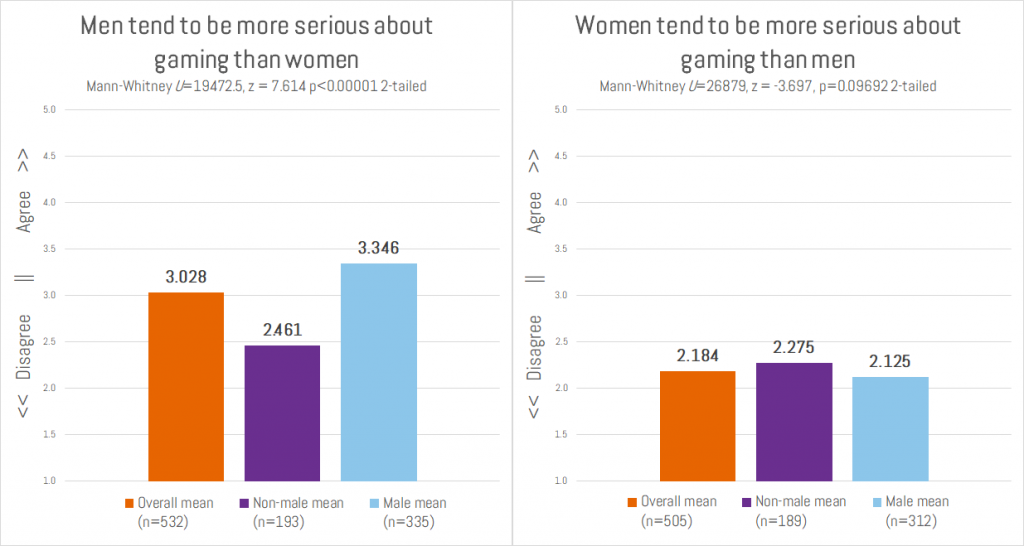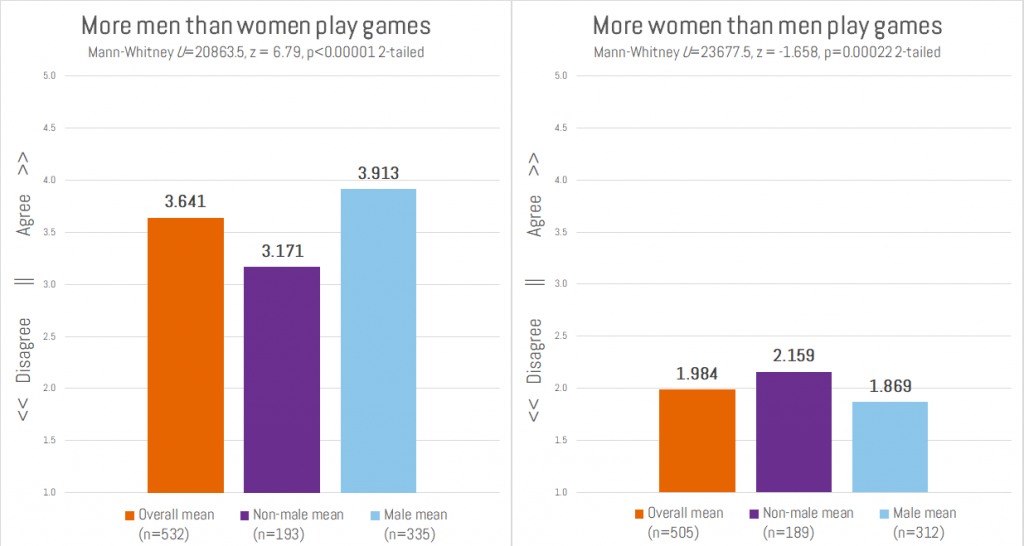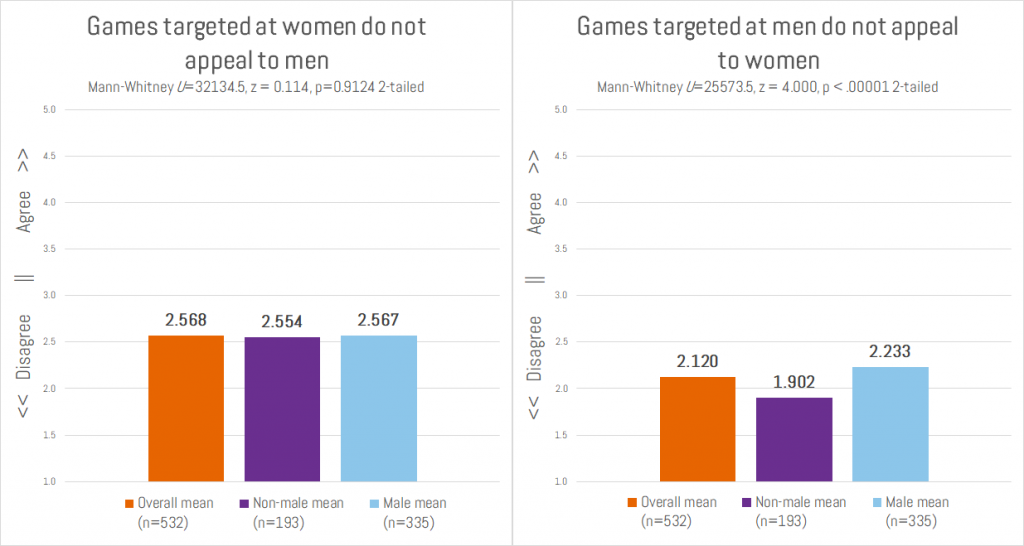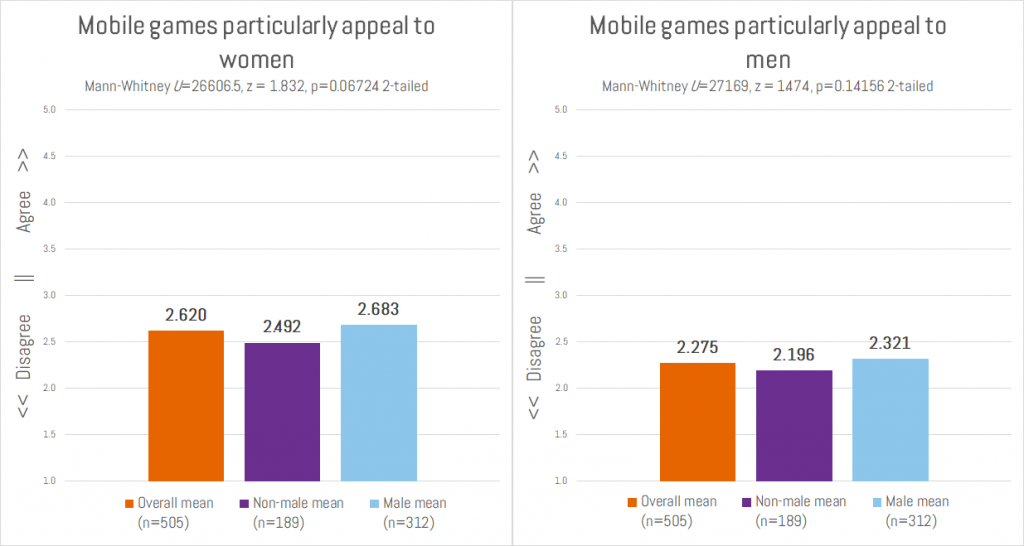By: Patrick W. Zimmerman
Video games aren’t just played by pimply-faced d00dz living in their parents’ basements with -5 Charisma Sweatpants of Eternal Virginity anymore. The truth is that they probably never really were.
But some myths persist, without any need for pesky evidence to get in the way. Plenty of people are happy to blindly accept, internalize, and repeat a feel-good narrative about Good vs. Evil, Right vs. Wrong, or the poor oppressed white males of the world vs. the G.R.O.S.S. Social Justice Warriors (a cabal determined to Fem-Zap Ray all your childhood heroes). Myths are powerfully attractive when they buttress our own hope that we are the Special Ones, the Real Victims here. They foment the delusion that if only for the evil deeds of those Others, our lives would be Great Again. Facts tend to get in the way of these worldviews, but (as seen on TV!) they have a well-known liberal bias.
So, how well have people’s conceptions about gamers managed to insulate themselves from the reality of electronic entertainment as mainstream mass culture (and, increasingly, as high culture)?
Let’s find out!
The question
We picked four myths about gender and games to test, looking for which old narratives about the supposedly masculine (and marginalized) space of gamerhood were still influential among self-identified gamers themselves.
- Men tend to be more serious about gaming than women
- More men than women play games
- Games targeted at one gender do not appeal to the others
- Mobile games are more appealing to women than men
We then looked at each myth asking two questions:
- To what extent is the myth still influential?
- Is there a difference between how dominant (men) and minority (non-men) groups of gamers absorb these ideologically-loaded narratives?
Survey says…
Well, would you look a that, men still consider themselves to be more serious about gaming. Or, to put it another way, the “real gamers tend to be dudes” myth is alive and feebly kicking, at least in the self-identified male part of the population. Non-men? They didn’t so much go for it, rejecting the idea that either men or women had a claim to be more serious about their free time electronic entertainment choices.
Oh, look, there are some misogynistic tendencies in the gamer community. Who would’ve thought?
In addition, most gamers believed that more men than women played games. Though this is likely still factually based, it’s interesting to note that the belief was significantly less prevalent among non-men), and men tended to believe that they were more serious about gaming than women (while non-men rejected this outright).
On a less depressing note, the other two myths we tested were not held by the surveyed population. The ideas that games targeted at one gender don’t appeal to the others and that mobile games are particularly appealing to either sex were rejected.
Detailed results
I’m going to cover each myth from most to least widely held belief (on average, ignoring segmentation for now). We surveyed gamers, asking “How much do you agree or disagree with the following statement?” to both each myth being tested and to its distaff counterpart (an anti-myth) in order to control for acquiescence bias.
- Men are more serious about gaming than women: Myth persists…among men but not non-men.
- Gender difference? – Yup, and quite a significant one. This is the only myth where one gender (men) accepted the myth while the others (non-men) rejected it (in all others, gender differences manifested themselves as differences in strength of sentiment). Interestingly, non-men rejected the idea that either gender was more serious.
- More men play games than women: Myth persists. Interestingly, both genders disagreed with the idea that more women play games than they agreed with the idea that more men do.
- Gender difference? – Yes. Men agreed with this strongly compared to non-men, who were rather tepid, particularly in the acceptance of the idea that more men played.
- Games targeted at women do not appeal to men: Myth rejected by both groups, particularly the gender-flipped idea that games targeted at men don’t appeal to women. Somewhat surprising, given much of the angst on this topic.
- Gender difference? – Yes. Non-men strongly reject the idea that games targeted at men don’t appeal to women, while men more mildly reject it.
- Mobile games particularly appeal to women: Myth rejected by both groups. Neither gender bought into the idea that mobile games were particularly interesting to one or the other. The business world might be surprised to hear this. Looks like the mobile gaming world has evolved beyond Candy Crush, and the gaming community knows it (though maybe the venture capitalist one doesn’t yet).
- Gender difference? – Nope. The idea that men found mobile games particularly appealing was rejected more strongly by both genders, but not unequally.
Methodology
I asked respondents on Facebook, Twitter, and Reddit “How much do you agree or disagree with the following statements?T” which asked them to rate each of the following statements on a 5-point Likert-type scale (1=Completely disagree, 5=Completely agree), as well as its gender-flipped opposite (to control for acquiescence bias).
- Men tend to be more serious about gaming than women.
- Women tend to be more serious about gaming than men.
- More men than women play games.
- More women than men play games.
- Games targeted at women do not appeal to men.
- Games targeted at men do not appeal to women.
- Mobile games particularly appeal to women.
- Mobile games particularly appeal to men.
To minimize order effects, the questions were randomly presented.
In addition, we asked about the statement “Game studios are under pressure to add more women Player Characters” but neglected to correct for acquiescence with a distaff version. So, in the interests of a consistent methodology, we did not use the answers to that question (though it would have potentially made the argument stronger). If anyone wants that data, it is included in the raw datafile on the Datasets & Downloads page.
As with the story v. gameplay study, I sorted the results into two groups, self-identified males and non-males (female, questioning, transgender, agender, etc), while reserving “prefer not to state” responses for the overall numbers only.
I then ran Mann-Whitney U tests on the two segments for each question. The z-value was greater than the critical +/-2.58 (for a 2-tailed test with an alpha of 0.01) for 4 of the 8 questions, showing differences in responses from each gender group at a significance of p<0.01.
Many thanks to Katherine Zimmerman for help with the survey design (particularly with correcting for acquiescence bias) and and to Ash Rivas for help identifying and picking the gamer myths to be tested. Also to Serge Egelman, who originally pointed me towards the Mann-Whitney test.
Conclusion
People are still the worst. Some of them. Sometimes. But some myths are indeed losing their power. While “serious” gaming continues to be a pretty clear value judgement against female gamers, it’s not that strongly held, even among men (3.35/5 is hardly an overwhelming margin). Some of myths that are relatively common, on a more positive note, found little reception among the people most affected by them, gamers themselves. I was honestly surprised at how universally rejected the idea that games targeted for one gender exclude the other turned out to be by the respondents.
The gaming community clearly still has a ways to go before we reach an utopia enlightened society of happy digital awesomeness. But, think about where we came from, when Lara Croft was a groundbreaking female player character. The medium is maturing, both figuratively (in the quality and breadth of games produced) and literally (in the sophistication, diversity, and appeal of its fanbase).
So things are getting better. Slowly.
What’s next?
Myths and ideology are fascinating, but primarily in how they influence behavior.
So let’s go look at some gamer behavior. Possible topics:
- What gender player character do people generally choose to play (in custom games or in fixed-character games)?
- How widespread are anti-harassment measures? How effective are they?
- Gaming across generations: Do people play games with their sons and daughters differently?
- How diverse are the people who make games? Can we learn anything from looking at gaming credits?






No Comments on "Gamer myth deconstruction zone: Men still tend to see themselves as more serious gamers"